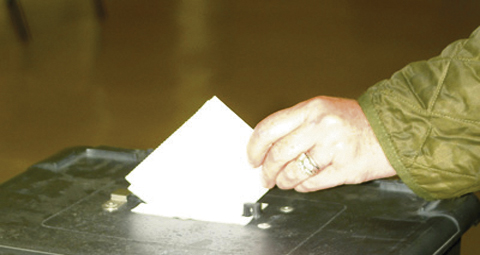May 8 | ![]() 0 COMMENTS
0 COMMENTS ![]() print
print

Threats to our lives include those that do not end them
This week’s editorial leader
By the time readers pick up this week’s SCO the general election voting will have closed and a new UK Government will—or will not—have been formed. As with the Scottish referendum, some voters hope the outcome of the ballot will herald change and others are rooting for the status quo to be maintained. Then there are those who think, no matter the outcome of the UK general election, the world will not be rocked to its core, or even changed.
That is also an argument being put forward by those pushing for radical change, both here in Scotland and abroad. MSPs will shortly be asked to vote on whether or not to legalise assisted suicide, something the Church in Scotland vehemently opposes. The proposed bill, ruled dangerously flawed by Holyrood’s health and sport committee, will nonetheless shortly reach the floor of the Scottish Parliament for the first time.
At the same time, Ireland faces its own referendum as its voters decide on whether to allow same-sex marriage. The Catholic Church in Ireland has firmly and vocally objected to this societal shift but figures in popular culture—such as Brendan O’Carroll, the actor behind Mrs Brown’s Boys—play a clever game in pre-ballot campaigns by saying concerns in the past over inter-religious and inter-racial marriage were swept aside and ‘the world did not end.’ Inter-religious and inter-racial marriage, did not, however, alter the make up of family from a mother, father and children.
Here in lies the danger, the erosion of traditional Christian values on life, family and marriage one chip at a time. Well-funded and vocal activism attempts to normalise in our society what Catholicism can never accept and it does so under the guise of equality. This illustrates why the Catholic Church and lay Catholics remain a key check and balance in our political system. Without the Church’s involvement in Care Not Killing, for example, MSPs would not have been as aware of the logical, moral opposition to assisted suicide.
No doubt the synod on family this year will return to the challenging issues surrounding marriage and divorce. The Church and the laity must remain ever watchful of the creep of secularism in our society, and the erosion of religious freedom at home and abroad. What we face may not be grabbing the same headlines as those following the tragic earthquake in Nepal or ongoing religious violence in the middle east, but make no mistake the threats here are just as clear and present, as is the need for Catholics to be involved in politics both actively and as a key check and balance to policy.










